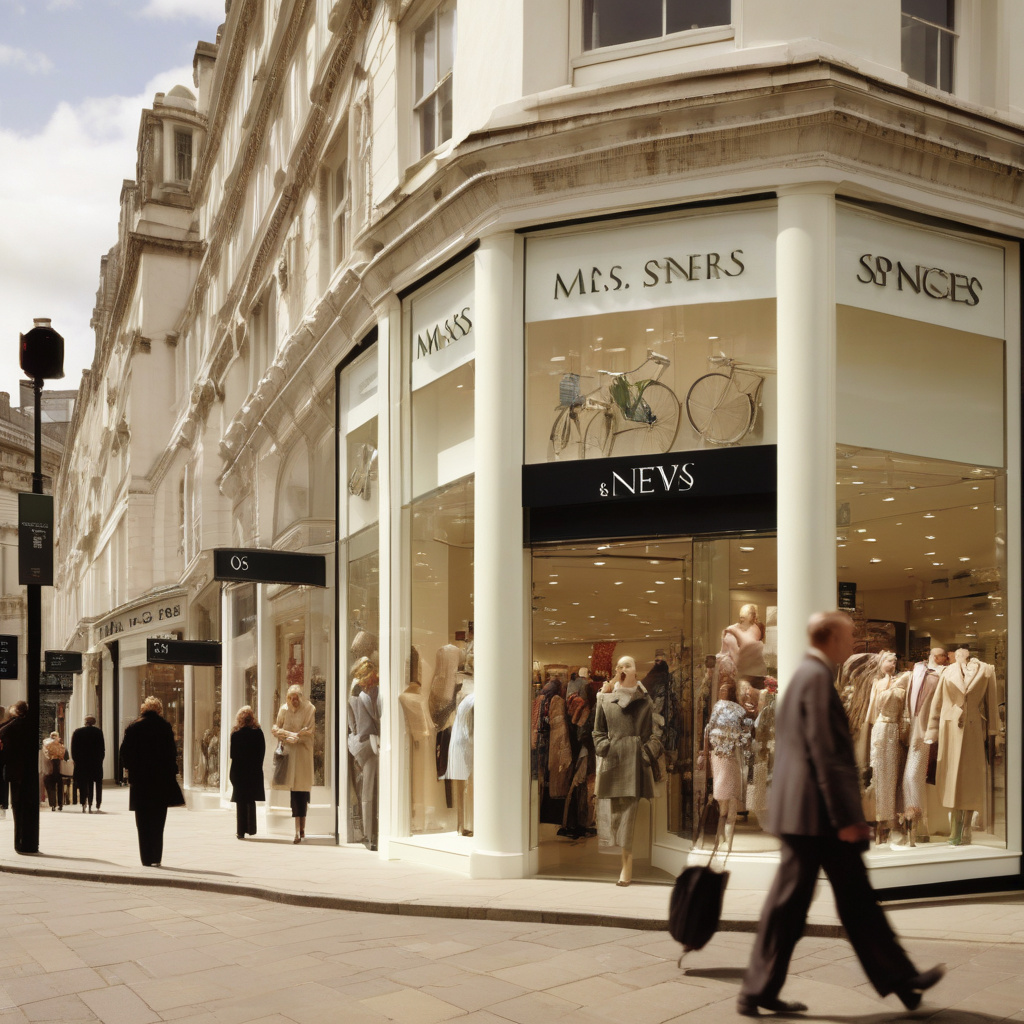M&S Warns of Store Closures as Reeves Targets Larger Stores in Tax Raid
In a significant move that could reshape the retail landscape, Marks & Spencer (M&S) has issued a stark warning about potential store closures. This announcement comes in the wake of Chancellor Rachel Reeves’ plans to increase business rates on larger retail properties, a strategy that could have far-reaching implications for one of the UK’s most iconic retailers.
M&S, known for its quality food, clothing, and home products, has been navigating a challenging retail environment for several years. The pandemic, coupled with evolving consumer habits and economic pressures, has already strained many retailers. The prospect of higher business rates adds another layer of complexity, particularly for larger stores that already face stiff competition from online shopping and discount retailers.
Chancellor Reeves’ intention to raise business rates on larger properties is aimed at generating additional revenue for the government. While the rationale behind this move may be rooted in fiscal necessity, it raises critical questions about the sustainability of larger retail operations. M&S, which operates numerous large-format stores, has indicated that such increases could lead to difficult decisions regarding store viability.
In a recent statement, M&S highlighted that the increased tax burden could compel the company to reassess its store portfolio. This could mean shuttering some locations that are deemed unsustainable under the new business rates framework. The impact of this potential downsizing could be felt not only by M&S employees but also by local economies that rely on these retail hubs.
The implications of this policy shift extend beyond M&S, as other large retailers may also be forced to reevaluate their operations. For instance, companies like Tesco and Sainsbury’s, which operate extensive store networks, could face similar challenges. A rise in business rates could lead to a wave of closures, particularly in areas where foot traffic has already declined due to changing consumer habits.
Critically, the business rates system in the UK has long been a point of contention among retailers. Many argue that it disproportionately affects larger stores, putting them at a disadvantage compared to smaller businesses that may benefit from lower rates. This has led to calls for a comprehensive reform of the business rates system, which many see as outdated and in need of modernization.
Additionally, the economic landscape in which M&S operates is fraught with challenges. Inflation has been a significant concern, affecting consumer spending power. As households tighten their budgets, retailers must find ways to attract customers without passing on excessive costs. The introduction of higher business rates could further complicate this balancing act, forcing retailers to raise prices or cut costs, both of which could deter consumers.
M&S has been actively working to adapt to these changing circumstances. The company has invested in its online presence and has focused on improving the customer experience in its stores. However, the additional financial strain from increased business rates could hinder these efforts. The company may be forced to divert funds from innovation and expansion towards covering the increased tax liabilities, stifling growth potential.
Moreover, M&S has a long history of community engagement, often seen as a staple in many towns across the UK. Store closures would have a detrimental impact not only on employees but also on local communities that rely on these stores for both employment and as a shopping destination. The closure of even a few stores could lead to a ripple effect, affecting local suppliers and service providers who rely on M&S for business.
As the government navigates its budgetary challenges, it must consider the broader implications of its policies on the retail sector. A balanced approach that supports both large and small retailers is essential to ensure a thriving retail environment. The risk of store closures due to increased business rates could lead to job losses and reduced consumer choice, which ultimately harms the economy.
In conclusion, M&S’s warning about potential store closures highlights the critical intersection of retail and government policy. As Chancellor Reeves implements her plan to increase business rates on larger properties, the repercussions for retailers like M&S are significant. The future of many stores hangs in the balance, and it is imperative for policymakers to consider the long-term consequences of their decisions on the retail landscape. Retailers need a fair playing field that allows them to thrive and contribute positively to the economy.
retail, businessrates, M&S, economicimpact, storeclosures
